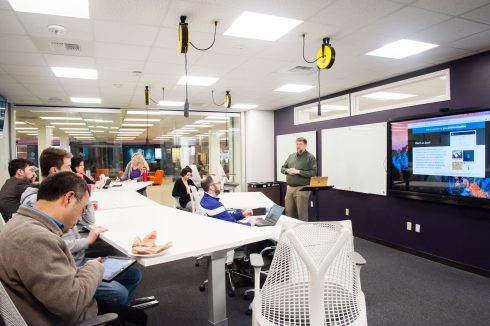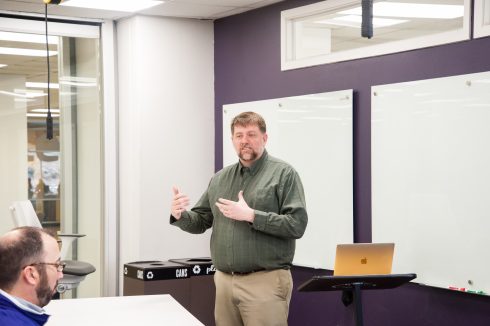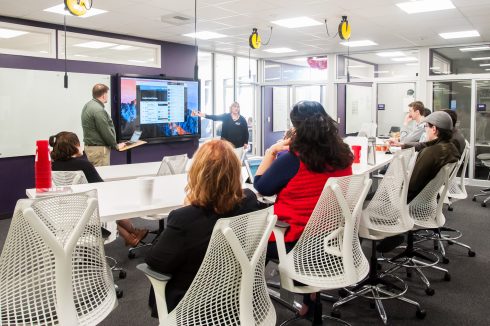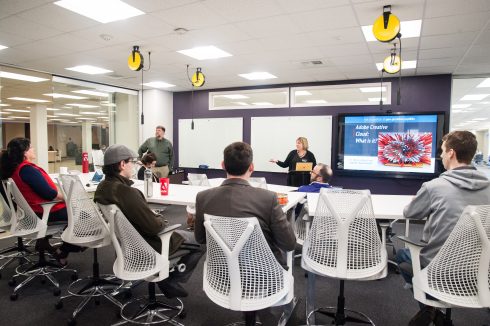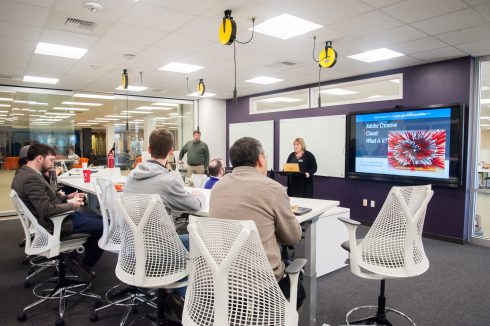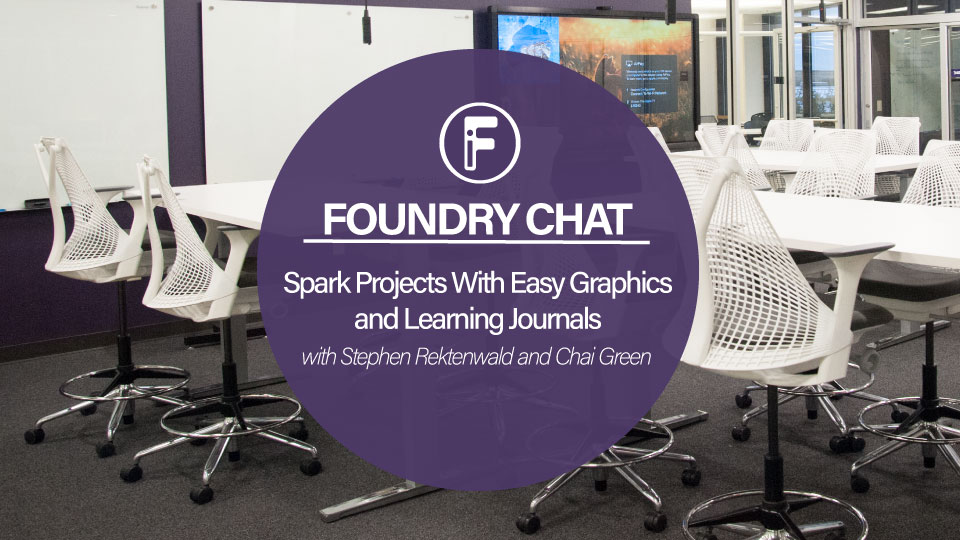
by Stephen Rektenwald | Nov 9, 2018 | Adobe CC, Spark
Adobe Spark is an introductory tool that helps those who are just beginning with creative design tools or who would like to use some of its unique features with students who may have a wide variety of skills. Watch the below video as Chai Green, the library’s Digital Design Specialist, and Stephen Rektenwald, Assistant Director of the Innovation Foundry discuss some interesting academic uses of Adobe Spark.

by Donald Simpson | Apr 21, 2017 | Adobe CC, Innovation Foundry, Spark Page
Today, Donald Simpson, talked about some basics for when providing your data and research in a digital presentation. You can find the Adobe Spark Page presentation here. You can also download the Visualizing Your Research PDF here.
For more help:
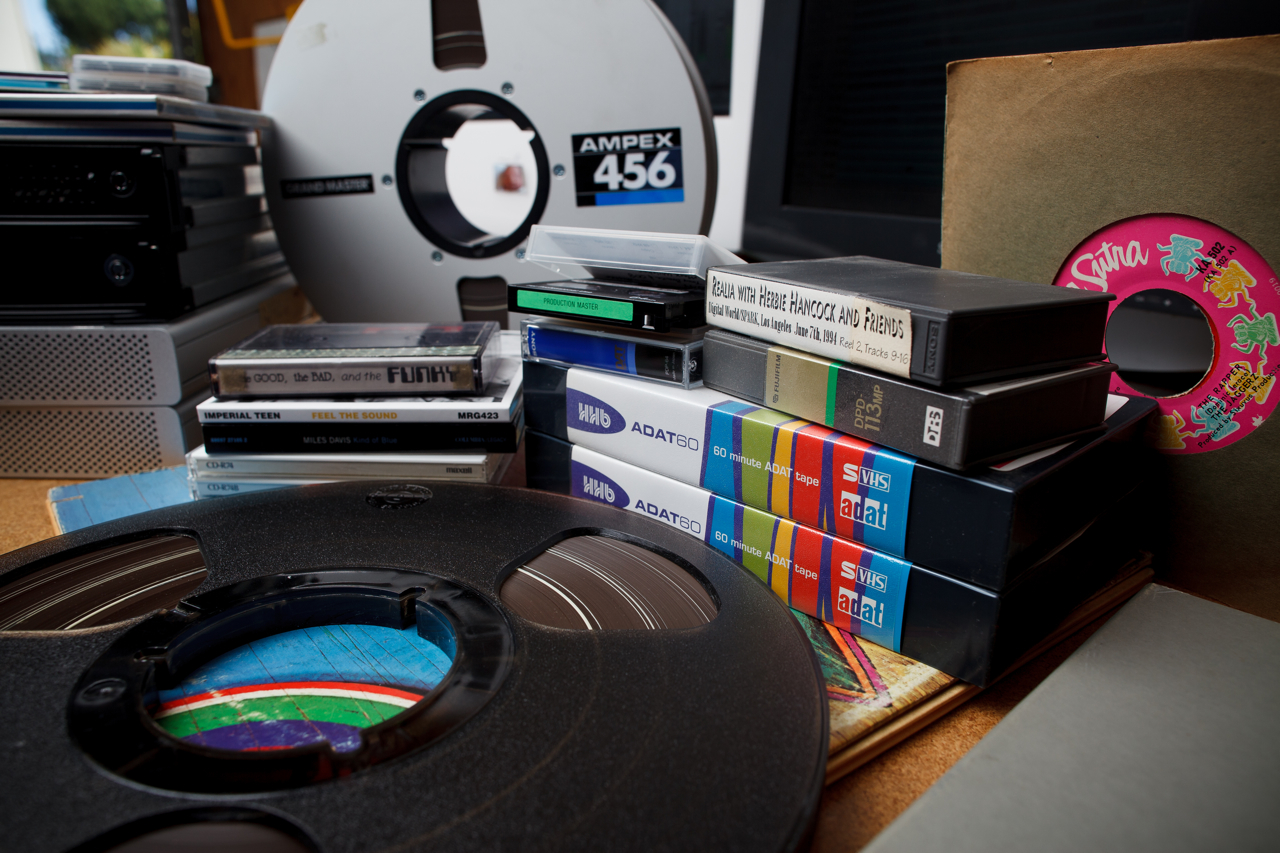
by Donald Simpson | Mar 10, 2017 | Adobe CC, Innovation Foundry
I have been able to present this content twice – so many of you who may have only attended the first presentation might want to see my slides from the second. Here they are:
Analog to Digital
Lets face it, the creation of data can be somewhat overwhelming. By the end of 2016, 2,500,000,000,000,000,000 bytes (2.5 Exabytes) of data was being created every…single…day.
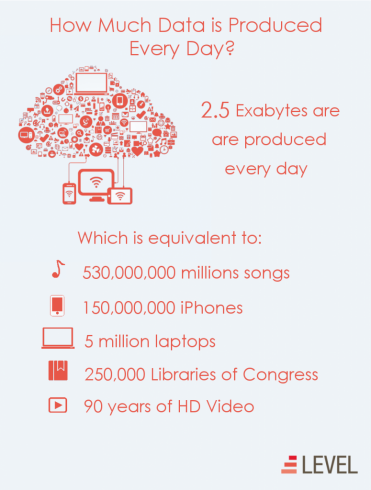
So when it comes to thinking about adding to an ever growing digital world by digitally preserving the analog media files (pictures, papers, audio recordings, video tapes, letters, postcards, etc.) we all have in boxes, attics, and hanging on our walls, a lot of us are hesitant, fearful, reluctant, or not even interested in pursuing the idea – let alone the technical aspect of transforming those things. FEAR NOT! It is not as daunting as one might think, and believe it or not, a lot of the tools you may need to digitize your analog files may already be in your possession or fairly easy to obtain (or borrow).
Today, I was able to talk about some simple ways of digitizing and preserving some of the following analog media types.
Paper:
- Using Adobe Acrobat on your Smart Phone. Android iPhone
- Checking with your local library, church, or friends to see if you can use their scanner.
- Purchasing a scanner. Epson Scanner on Amazon
Image Prints:
- Using your Smart Phone, including some apps that are available.
- Checking with your local library, church, or friends to see if you can use their scanner.
- Purchasing a scanner. Epson Scanner on Amazon
Image Film:
Video:
Where should I be storing all my digital files? Good question! Never keep just one copy of your digital files…never, never, never!
- If you are a part of the ACU community, you have 2 Petabytes worth of storage on your Google Drive account.
- If you are just storing images, everyone with a Gmail account has unlimited storage of their images in a compressed format (jpeg vs. tiff/raw).
- If you have an Amazon Prime membership, you also have unlimited storage of your images.
- External hard-drives are getting better and cheaper every month it seems. Be sure to have several backups created.
Where should I NOT be storing all of my files?
- Do not keep any of your files in a place that is not climate (temperature and humidity) controlled.
- Do not trust being able to have access, play or view your analog files in their original format – unless it is paper. Paper is still very good, see the first bullet point.
- Do not trust having all of your digitized files on your computer, and nowhere else.
- Do not trust having all of your digitized files on one eternal drive.
- Do not trust having all of your digitized files just in “the cloud.”
What format should I be converting my analog media too?
- Text = PDF
- Images = TIFF/RAW and JPEG
- Audio = WAV/AIF and mp3
- Video = .MOV and mp4
What about settings? The University of North Texas has a great Digital Projects – Standards page. It really provides you with the settings you will want to use if you plan on truly digitally preserving your analog media files.
As always, if you need some help, guidance, or even a little training – you can email me at donald.simpson@acu.edu
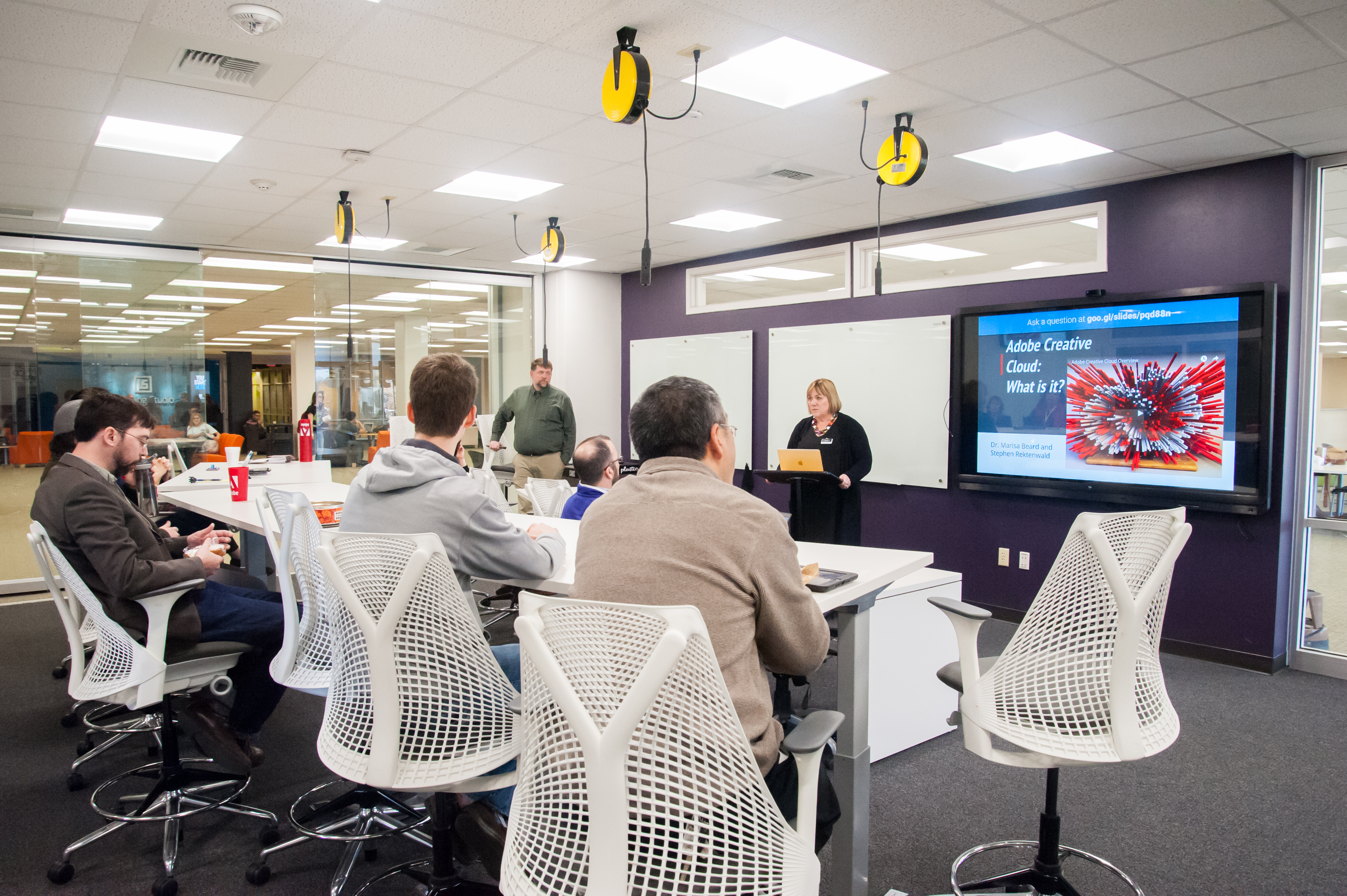
by Donald Simpson | Feb 10, 2017 | Adobe CC, Innovation Foundry, Lynda.com
What is Adobe CC? Today, Dr. Marisa Beard and Stephen Rektenwald talked about and demonstrated some of the Adobe Creative Cloud applications that can be very useful in your teaching, learning, and everyday creations. From demonstrating how to download the Adobe CC app to your desktop, to providing resources on how to use the various applications, Marisa and Stephen interacted with those in attendance as well as fielded questions about the various ways the Adobe tools can enhance just about anything you put your imagination towards. Here is the link to the presentation.
